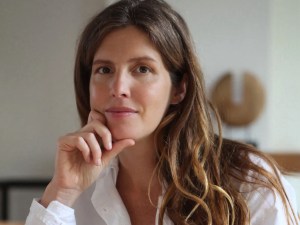Susan Carey receives David E. Rumelhart Prize
Susan Carey, a Harvard psychologist whose work has explored fundamental issues surrounding the nature of the human mind, has been awarded the 2009 David E. Rumelhart Prize, given annually since 2001 for significant contributions to the theoretical foundation of human cognition.
Carey, the Henry A. Morss Jr. and Elisabeth W. Morss Professor of Psychology in the Faculty of Arts and Sciences, is the first woman to receive the prize. Additionally, Carey is the first recipient of the prize for theoretical contributions to the study of human development. Previously, the award was given only for work involved with computational modeling.
The award, which comes with a $100,000 monetary prize, was announced July 24 at the annual meeting of the Cognitive Science Society in Washington, D.C. “Susan Carey was selected for her career of field-changing theoretical and empirical work on cognitive development,” says Linda Smith, chair of the Rumelhart Prize selection committee and professor of psychology at Indiana University. “She was cited specifically for her contributions to understanding conceptual change and the development of number concepts. These contributions have had extraordinary reach in cognitive science, spurring advances in cognitive neuroscience, in evolutionary psychology, and in the comparative study of human and nonhuman primates.”
Carey’s research has been centered on child development, ontogeny, and the history and evolution of human cognition. She is the author of “Conceptual Change in Childhood” (MIT Press, 1985) and co-author of “Constraints on Conceptual Development: A Case Study of the Acquisition of Folkbiological and Folksociological Knowledge in Madagascar” (Monographs of the Society for Research in Child Development, 2004). Her forthcoming book, “The Origins of Concepts,” will be published in the fall by Oxford University Press.
“I am extremely honored to have received the Rumelhart Prize, and to be among such an impressive and distinguished group of recipients of this award,” says Carey. “It couldn’t be sweeter to be recognized by my colleagues in this way.”





